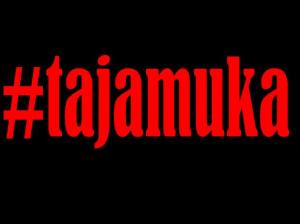NRZ Want Trucks Banned From Carrying Bulk Goods

Published: 2016 August 10 07:14:53 (6702 Views)
THE National Railways of Zimbabwe (NRZ) is advocating for the enactment of a law that will restrict freight trucks from carrying bulk goods on the county's roads.
In a speech presented on Sunday during the 9th national congress of the Zimbabwe Railways Artisans Union, NRZ acting general manager Engineer Alfred Gunzo, said the parastatal was lobbying the Government for a Statutory Instrument as part of measures to turn around the parastatal.
He said despite prevailing challenges, the parastatal had recorded a slight rise in volumes since the beginning of the second half of 2016.
Eng Gunzo did not, however, present figures on the improved situation.
“NRZ is currently lobbying Government on the ring-fencing of bulk commodities such as coal and chrome on rail through a Statutory Instrument and this development, once endorsed by Cabinet, will unlock value through reducing competitive pressures and improved market share,” he said.
In terms of recapitalisation initiatives, management in consultation with the Government is in the process of identifying a suitable financier.
Eng Gunzo said they had made concerted efforts to recover both foreign and inter-parastatal debts while efforts are also being made to ensure that all outstanding revenues are recovered from the real estate portfolio.
He said the parastatal has signed a number of transportation deals with some companies.
“We’ve jointly signed an MoU with NJZ for the movement of iron ore to Maputo. PPCZ is opening a new factory in Msasa suburb in Harare and we’re negotiating with the customer for clinker movements to Msasa starting mid-August,” said Eng Gunzo.
He said NRZ had also signed an agreement to move coal from Beitbridge to Harare.
“The international alloy and ferro-alloy prices have firmed up and the appetite for commodity exports is increasing. We’ve finalised commercial negotiations with companies willing to use rail”.
Eng Gunzo said NRZ had received orders to transport maize and wheat imports into the country to alleviate drought up to June 2017.
“Movements are ongoing from Maputo, Beira, South Africa and Zambia. Indications from climate experts show that the drought effects may last up to 2019 and economies need to create strategic grain reserves. We’ll also put in place initiatives to recover debt from both foreign and inter-parastatal debts to address some of our financial challenges,” he said.
The giant parastatal has over the years suffered losses and ballooning arrears to different creditors including workers. Management and the board have since hinted on plans to offload close to 1 400 workers from an estimated 6 000 strong workforce as part of measures to tame the ballooning wage bill.
NRZ owes workers over 15 months’ worth in unpaid salaries amounting to a total of $87 million.
The NRZ is one of 10 state enterprises targeted for reform by the Government.
At its peak the company used to employ about 15 000 people with a downstream impact on other industries
- Chronicle
You May Like These Videos
Comments
There are no comments.
Get Zim Metro Updates Alerts
Big Reads

Schoolgirl drops out after continuous 'sexual abuse' by teacher
by Staff Reporter | 2019 August 13 07:42:33
Mugabe Knows Nothing About The Zimbabwe Constitution: MP
by Staff Reporter | 2016 October 01 08:12:02
Zim's Protesting Graduates Risk Losing Degrees For Expressing Anger Against Mugabe
by Staff Reporter | 2016 October 01 07:57:08
Troubled Harare Giants Dynamos Falls Into Another Deep Crisis
by Own Correspondent | 2016 October 01 07:49:17
Grace Mugabe Grovels At Mnangagwa, Says I Did Not Ask Ubaba To Fire You
by Staff Reporter | 2016 October 01 07:31:48
Mugabe Attacks Mawarire, Claims The Exiled Pastor Failed To Divide Zimbabwe
by Staff Reporter | 2016 October 01 07:19:13
Shock As Local Bank Denies 'Rich' Mugabe's Son Heifty Credit
by Own Correspondent | 2016 September 30 19:14:54
Trouble For Police Officers Who Have Been Mercilessly Bludgeoning Protesters
by Staff Reporter | 2016 October 01 07:20:19
Mugabe "Home Coming" And "Thank You" Rally On Cards
by Own Correspondent | 2016 September 23 06:48:24
Prof Moyo Was Dumped By Western Embassies, Claims Mutsvangwa
by Staff Reporter | 2016 September 22 10:08:07
Broke RBZ Tracks Down Zimbabweans Living Outside The Country Over Taxi
by Staff Reporter | 2016 September 22 09:16:20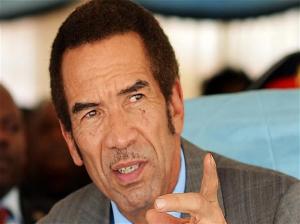
You Are Too Old To Lead, Aging Zim President Mugabe Told
by Own Correspondent | 2016 September 22 07:19:25
Anti-Corruption Commission Loses Property In Failed Probe
by Own Correspondent | 2016 September 20 03:18:19
SHOCKING:14 Year Old HIV-Positive Boy Rapes 7 Pupils
by Own Correspondent | 2016 September 20 00:04:55

 WATCH: Victims Narrate Ordeal After Being Clobbered By Riot Cops
WATCH: Victims Narrate Ordeal After Being Clobbered By Riot Cops FLASHBACK: Morgan Tsvangirai Won't Resign Despite Illness
FLASHBACK: Morgan Tsvangirai Won't Resign Despite Illness  Police Violently Beat Harare Protesters
Police Violently Beat Harare Protesters  Zimbabwean Man Who Was Shot By Tswana Employer Appeals For Help
Zimbabwean Man Who Was Shot By Tswana Employer Appeals For Help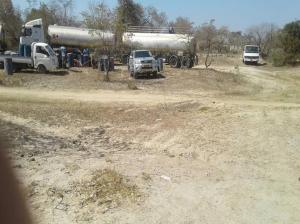







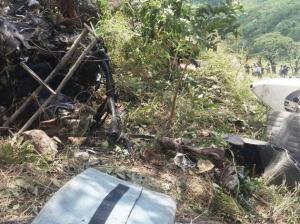

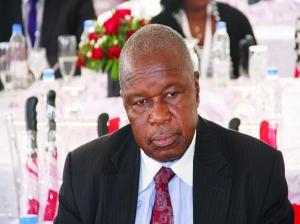

.jpg)

